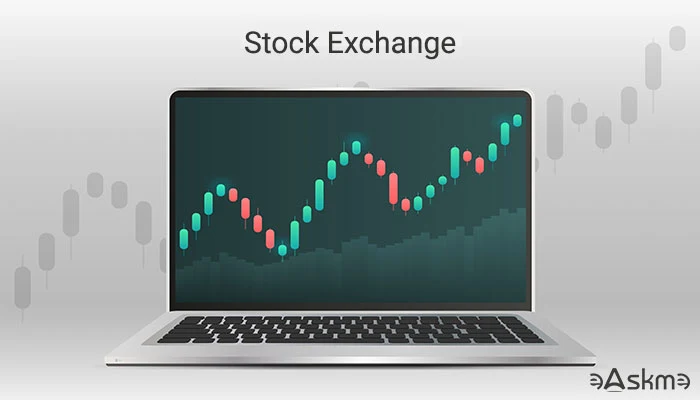Stock exchanges are an essential part of a country's economy. They are essential to businesses because they provide a way to raise the capital they need to run their businesses without incurring debts, thereby avoiding excessive costs on interest payments. Stock exchanges are typically described as a centralized and organized market in which investors meet with other exchange participants to buy and sell shares, stocks, bonds, options, and so on.
 |
| Features of the Stock Exchange: eAskme |
It is a well-organized market:
The stock exchange is a formal market where buyers and sellers meet to trade following agreed-upon rules and procedures.
Only genuine companies are listed, the exchange's activities are monitored, and investor funds are safeguarded.
Companies that want to list their securities on the exchange must adhere to its rules and regulations.
A management committee:
Every stock exchange has a management committee with all management and control rights.
The stock exchange's management committee has complete authority over the exchange's management and control.
They establish exchange listing requirements for companies to meet before their shares can be listed on the exchange.
All stock exchange transactions are carried out by the prescribed procedure and under the supervision of the management committee.
Purchase and sale of securities that have been approved:
The stock market provides a venue where existing and approved securities can be easily bought and sold, allowing investors to invest in suitable securities while also allowing them to switch from one security to another in the event of a risk.
It allocates capital among firms by determining prices that reflect the actual investment value of a company's stock.
A ready market for securities ensures their liquidity and thus encourages people to channel their savings into corporate investments.
Bylaws and rules:
Stock exchange transactions are conducted in public and are governed by well-defined rules, regulations, and bylaws.
Stock exchange rules and bylaws govern all transactions. Stock exchanges operate based on specific stock exchange rules and bye-laws.
This provides investors with a high level of security and fairness and protects new investors.
Transparency:
Every day, the stock exchange makes complete information about the price and volume of stock available to the public.
The Stock Exchange provides its members with the facilities, systems, and mechanisms that enable them to obtain precise information on the purchase and sale of bids and securities.
Disseminate and keep the general public up-to-date on stock market information.
The stock exchange ensures that all market participants interested in securities have instant access to data for all buy and sell orders, thereby assisting in the fair and transparent pricing of securities.
Only authorized members are involved in the transactions:
Companies that list their securities on the stock exchange must submit an annual report as well as an audited balance sheet to the exchange. As a result, only genuine companies can operate and have their shares traded.
Listed companies are heavily regulated, and their transactions are closely scrutinized by market regulators such as the Securities and Exchange Commission.
Failure to comply with the regulations may result in the suspension of trading by the exchanges, being blacklisted by the exchange, and other disciplinary measures.
Stock exchanges are for-profit organizations that charge a fee for their services:
These stock exchanges' primary sources of revenue are transaction fees charged for each trade executed on the exchange platform, as well as listing fees charged to companies during the initial public offering (IPO) process and sales of market data generated on the exchange platform.
In conclusion, a stock exchange is an organization in an association or a company.
It is regulated by a local governing body and an in-house governing board that regulates and supervises the exchange activities.
It is governed by a framework of rules and regulations, as well as bylaws, to which all market participants must adhere; there is transparency and an open system of communication between members on the exchange; stock prices on the exchange are based on supply and demand, as well as bids placed by buyers and offers proposed by sellers; and brokers serve as a link between buyers and sellers.
Still have any question, do share via comments.
Share it with your friends and family.
Don't forget to like us FB and join the eAskme newsletter to stay tuned with us.
Other handpicked guides for you;













